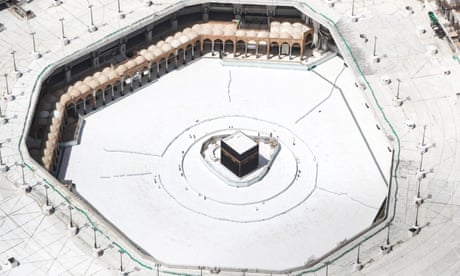Ramadan is normally a sociable time, as abstention from food and water during daylight hours gives way to sumptuous meals and gatherings at dusk.
But this year, the coronavirus pandemic has cast a long shadow over the rituals, which have been modified to fit public health directives on physical distancing. The month of fasting and reflection, which has begun with the sighting of the crescent moon, will be observed by the world’s 1.8 billion Muslims mostly in private.
Mosques will remain closed to evening prayers and feasting will become a more intimate affair, within the confines of family homes. Large public banquets, provided by authorities, or benefactors, have been outlawed in much of the Islamic world, where curfews and lockdowns remain rigidly enforced.
Over the past two months, Muslims in the Middle East and other parts of the world have become accustomed to a variation on the call to prayer, caused by state restrictions on social gatherings. From mosques across the world, the familiar summons “come to pray” has been replaced by “pray at home”. And with the arrival of the year’s most sacred month, the ban on getting together has become more pointed.
“I’m not really looking forward to fasting this year, said Firas Mahmoud, a resident of the Lebanese capital Beirut. “It’s in spring this year, which is better than the last nine years of summer, but having no one to break the fast with, it feels like suffering. It feels flat.”
Ahead of the fast there was even discussion about whether going without sustenance for much of the day might have an effect on immunity – , and hence people’s capacity to fight off Covid-19. However, with no clarity about whether this is the case, and evidence to support the contrary – that fasting may in fact be beneficial – the premise of this year’s Ramadan remains unchanged.
“Muslim religious authorities around the world are advocating wide restrictions on gatherings, in or out of mosques, as a result of the [coronavirus] pandemic,” said Dr HA Hellyer, senior fellow at the Carnegie Endowment for International Peace.
“The mosques will remain virtually closed; the usual charity meal tables will be absent from the streets; and the frequent family socialising associated with Ramadan will be suspended.”


Post a Comment
If you have any doubt please let m know.